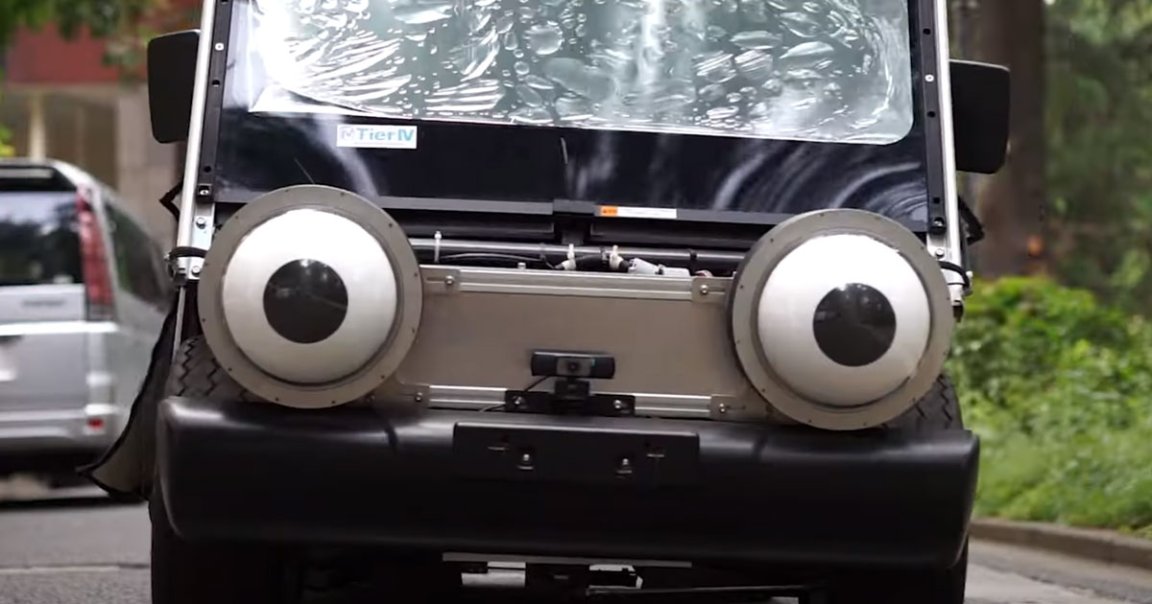
Stare Into My Soul
It’s probably only a matter of time before more and more autonomous vehicles start sharing the road with us.
That means there’ll be far more interactions between pedestrians and driverless cars — and researchers are trying to get ahead of any possible friction points by making it clear to the pedestrian they are crossing the street in front of a vehicle that is driving itself.
One idea, from researchers in Japan: giant, animatronic googly eyes attached to the front of autonomous golf carts — and the results speak for themselves.

Googly Eyes
Unlike with human drivers, pedestrians have no obvious way to interact with a vehicle that is relying entirely on sensors and onboard computers.
In a new study presented International Conference on Automotive User Interfaces last month, researchers from the University of Tokyo and Kyoto University attached giant, remotely controlled eyes to the front of autonomous golf carts to see if they could reduce traffic accidents.
Using a 360-degree camera, they filmed the cart approaching an intersection.
In an experiment, participants then relived these scenarios with the use of a virtual reality headset, and were asked to make a snap decision whether they’d be willing to cross the street or not with the golf cart approaching them.
Don’t Look Away
The researchers found that participants were surprisingly willing to cross the road when the golf cart approached them. The participants, however, said that they felt safer and more confident about crossing the road when the googly eyes were pointing at them, rather than being turned away from them.
That’s despite being a little terrified of the design of the giant eyes used in the experiment, as the participants were quick to point out.
In short, giant googly eyes could actually improve pedestrian safety — a creative solution for a self-driving future.
“The results showed that the eyes can reduce potential traffic accidents and that gaze direction can increase pedestrians’ subjective feelings of safety and danger,” the paper reads.
As Gizmodo points out, it’s also a reminder of the fact that not only vehicles will have to adapt to a new reality — we’ll also have to ensure that humans have a chance to do the same.
More on autonomous cars: Godfather of Self-Driving Cars Says the Tech Is Going Nowhere